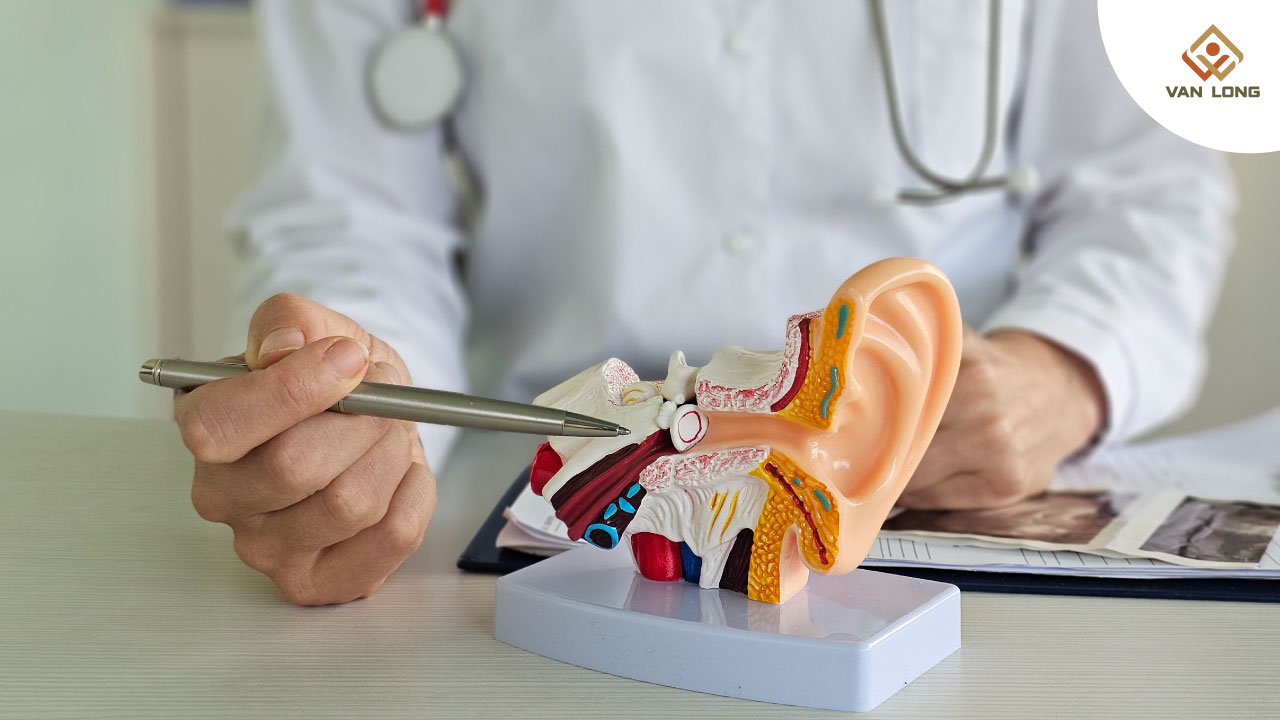Polyp mũi là một trong những bệnh lý phổ biến ở đường hô hấp trên, thuộc dạng u lành tính, hình thành từ sự thoái hóa của niêm mạc mũi hoặc xoang. Bệnh thường gây ra những triệu chứng tương tự như viêm xoang, cảm lạnh hoặc viêm mũi dị ứng, khiến nhiều người dễ nhầm lẫn và điều trị sai cách. Việc nhận biết sớm và can thiệp kịp thời giúp hạn chế biến chứng và bảo vệ sức khỏe đường hô hấp.

Polyp mũi được định nghĩa là một dạng tổn thương giả u, phát triển từ tổ chức đệm niêm mạc mũi hoặc xoang. Bệnh có thể xuất hiện ở một bên hoặc cả hai bên hốc mũi, thậm chí lan sang nhiều xoang cùng lúc. Mặc dù không phải là bệnh ác tính, polyp mũi có xu hướng phát triển lớn dần và gây tắc nghẽn đường thở, ảnh hưởng đến chất lượng cuộc sống.
Triệu chứng của polyp mũi thường dễ nhầm lẫn với viêm xoang hoặc cảm cúm. Một số biểu hiện đặc trưng bao gồm:
Điểm cần lưu ý là các triệu chứng của cảm cúm thường tự khỏi sau một tuần, trong khi polyp mũi không thuyên giảm nếu không có biện pháp điều trị phù hợp.

Nếu không điều trị kịp thời, polyp mũi có thể dẫn đến:
Nguyên nhân và yếu tố nguy cơ
Một số nguyên nhân thường gặp gây polyp mũi:
Yếu tố nguy cơ bao gồm:
Để xác định bệnh, bác sĩ thường kết hợp thăm khám lâm sàng và cận lâm sàng:
Phân độ polyp mũi

Áp dụng cho polyp mức độ nhẹ (I – II):
Ở giai đoạn này, việc vệ sinh đường hô hấp trên đóng vai trò quan trọng. Các giải pháp hỗ trợ như máy hút mũi giúp loại bỏ dịch nhầy, giữ cho niêm mạc sạch sẽ và thông thoáng, nhờ đó thuốc xịt corticoid có thể phát huy tác dụng tối ưu hơn.
Khi điều trị nội khoa không hiệu quả hoặc polyp ở mức độ III – IV:
Sau phẫu thuật, việc chăm sóc và vệ sinh mũi càng quan trọng. Lúc này, bệnh nhân được khuyến khích rửa mũi thường xuyên bằng nước muối và có thể sử dụng các thiết bị hỗ trợ như máy hút mũi bằng điện để loại bỏ dịch nhầy, ngăn ngừa tái phát.
Để hạn chế sự tiến triển của polyp và giảm nguy cơ tái phát, cần chú ý:
Mặc dù không thay thế được thuốc hay phẫu thuật, nhưng máy hút mũi lại mang đến nhiều lợi ích:
Khi được sử dụng đúng cách, máy hút mũi không chỉ hỗ trợ bệnh nhân polyp mà còn mang lại lợi ích cho cả những người thường xuyên bị viêm mũi xoang, viêm mũi dị ứng, giúp nâng cao chất lượng hô hấp và phòng ngừa biến chứng.

Q: Máy hút mũi có chữa khỏi được polyp mũi không?
A: Không. Máy hút mũi chỉ có tác dụng hỗ trợ vệ sinh mũi, loại bỏ dịch nhầy và giúp đường thở thông thoáng hơn. Điều trị polyp cần kết hợp thuốc hoặc phẫu thuật theo chỉ định bác sĩ.
Q: Người lớn bị polyp mũi có nên dùng máy hút mũi không?
A: Có. Máy hút mũi không chỉ dành cho trẻ nhỏ mà còn hữu ích cho người lớn, đặc biệt những ai bị nghẹt mũi do polyp hoặc viêm xoang.
Q: Sau phẫu thuật polyp mũi có dùng máy hút mũi được không?
A: Có thể dùng theo hướng dẫn của bác sĩ. Máy hút mũi giúp làm sạch dịch tiết sau phẫu thuật, ngăn ngừa viêm nhiễm và hỗ trợ hồi phục.
Q: Nên chọn loại máy hút mũi nào khi bị polyp?
A: Nên ưu tiên máy hút mũi bằng điện, vì lực hút ổn định, an toàn và dễ sử dụng. Đồng thời, nên chọn loại có chế độ điều chỉnh lực hút phù hợp để tránh làm tổn thương niêm mạc.
Q: Bao lâu nên hút mũi một lần khi có polyp?
A: Tùy mức độ tiết dịch, thông thường nên thực hiện 1–2 lần/ngày, kết hợp với rửa mũi bằng nước muối sinh lý để đạt hiệu quả tối ưu.
Polyp mũi là bệnh lý đường hô hấp khá phổ biến, có thể gây ảnh hưởng nặng nề đến sinh hoạt nếu không được điều trị đúng cách. Bên cạnh các phương pháp điều trị y khoa, việc chú trọng vệ sinh mũi xoang và sử dụng các thiết bị hỗ trợ như máy hút mũi bằng điện là giải pháp hữu hiệu giúp cải thiện triệu chứng, ngăn ngừa tái phát và bảo vệ sức khỏe hô hấp lâu dài
——————————
CÔNG TY TNHH PHÁT TRIỂN THƯƠNG MẠI DỊCH VỤ VÂN LONG
YOUR NEEDS - OUR BUSINESS
Hotline: (028) 3526 2468 / 098.484.0440
Email: cskh@vl-groups.com
Website: www.vl-groups.com
Địa chỉ:
- Văn phòng HCM: Tòa nhà Fosco, D35 + D36 - 40 Bà Huyện Thanh Quan, P.Xuân Hòa, TP. HCM
- Trung tâm bảo hành: 373/14 Nguyễn Kiệm, P.Đức Nhuận, TP.HCM
- Văn phòng Hà Nội: Khu VP Hồng Hà, 38.3/1 Ngõ 109 Trường Chinh, P.Phương Liệt, Q.Thanh Xuân, Hà Nội
- Kho Tổng: 938 Quốc Lộ 1A, P.Linh Xuân, TP.HCM
🌼 Shopee: https://shopee.vn/vanlonggroups
🌼 Tiktok: https://www.tiktok.com/@thietbichamsocsuckhoe
🌼 Tiki: https://tiki.vn/cua-hang/cham-soc-suc-khoe-van-long
🌼 Lazada: https://www.lazada.vn/shop/van-long-our-needs-your-business